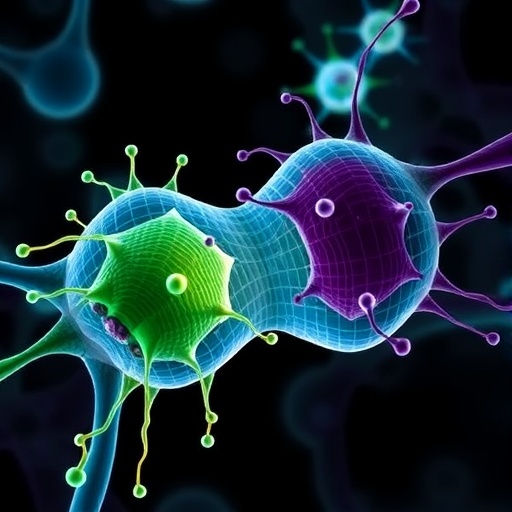Human reproduction and the intricate processes that underpin it have long fascinated scientists and laypeople alike. At the heart of this phenomenon lies the enigmatic realm of germ cells, which are the precursors to the gametes—sperm and eggs. These specialized cells not only facilitate reproduction but also play a critical role in ensuring genetic diversity across generations. In recent years, scientists have made remarkable strides in unraveling the complexities of human germ cell development, shedding light on both common and unique characteristics inherent to our species.
Germ cells are uniquely defined by their ability to undergo extensive differentiation, a process that is finely tuned during both embryonic and fetal stages of development. The journey of germ cells commences early in embryogenesis, when they are specified from pluripotent stem cells. This initial step is pivotal, as it sets the stage for the subsequent development of gametes. Advances in genomic and stem cell-based techniques have allowed researchers to delve deeper into the molecular mechanisms governing germ cell specification, revealing a tapestry of interactions between genetic and epigenetic factors.
In the struggle to comprehend human germ cell development, scientists have turned to both in vivo and in vitro models. These studies provide critical insights into the signaling pathways and environmental conditions essential for germ cell fate determination. Notably, the process of epigenetic reprogramming is of paramount importance. Through mechanisms such as DNA methylation and histone modification, germ cells undergo a reconfiguration of their epigenomes, ensuring that they are poised correctly to give rise to viable gametes.
Sexual differentiation of germ cells further complicates the narrative. In humans, the development of male and female germ cells is intricately linked with the presence of sex chromosomes and the hormonal milieu. Research has elucidated several key differences in how male and female germ cells mature, rounding out the understanding of sexual dimorphism in gamete formation. Female germ cells, for instance, exhibit a unique lifecycle characterized by a prolonged period of dormancy, which is not observed in male germ cells.
Additionally, a wealth of evidence highlights the role of environmental factors in germ cell health. Research has shown that various external influences, including temperature, nutrition, and exposure to toxins, can significantly impact germ cell development and function. This highlights the necessity for a holistic approach to studying germ cells, one that encompasses both biological and environmental contexts to truly grasp the nuances of gametogenesis.
As scientists continue to map the intricacies of germ cell biology, the implications extend far beyond understanding reproduction itself. The knowledge gleaned from these studies has profound implications for addressing infertility, a condition that affects millions of individuals worldwide. By reconstructing the biological pathways that govern germ cell development, potential therapeutic strategies can be devised to mitigate or even reverse germ cell-related afflictions.
Innovations in stem cell research have also opened new avenues for advancing reproductive medicine. The promise of in vitro gametogenesis, where germ cells can be developed from pluripotent stem cells, stands to revolutionize the field. This technique not only holds potential for treating infertility but may also aid in genetic screening and the preservation of endangered species. Consequently, researchers are fervently investigating the feasibility of reconstituting germ cell development in a laboratory setting, thereby bridging the gap between fundamental biology and clinical application.
Moreover, the evolutionary aspects of germ cell development cannot be overlooked. Understanding how germ cells evolved in humans compared to other species can shed light on the fundamental principles governing reproduction. Comparative studies of model organisms, including mice and non-human primates, provide a critical backdrop against which human germ cell development can be understood, highlighting both conserved pathways and unique adaptations.
As this field of research progresses, ethical considerations surrounding germ cell manipulation and in vitro techniques remain a critical dialogue that requires careful navigation. The prospect of creating human gametes from stem cells raises questions about the implications of such advances, particularly regarding identity, inheritance, and the sanctity of life. Scientists, ethicists, and policymakers must jointly address these issues to foster responsible innovation in reproductive medicine.
Once we understand germ cell development in its entirety, new frontiers will continue to emerge. There is a growing recognition of the intersection between germ cell biology and other fields such as immunology and oncology. For instance, the influence of somatic cell environments on germ cell differentiation offers intriguing possibilities for therapeutic strategies targeting cancer and autoimmune diseases, where germ cell function may be disrupted.
The ultimate goal of unraveling the complexities of germ cell biology is to forge new pathways toward improving human health and reproductive outcomes. As research in this vibrant field continues to advance, there is hope and anticipation that effective solutions will be discovered for combating infertility and related disorders that currently pose significant challenges.
In summary, the mechanisms underlying human germ cell development represent a rich tapestry of interactions between genetics, epigenetics, and environmental influences. The advances made so far are paving the way for transformative approaches to address reproductive health challenges and enhance our understanding of human heredity. In a world where infertility is a prevalent concern, the continued exploration of these mechanisms provides optimism for the generations to come.
Subject of Research: Mechanisms of human germ cell development
Article Title: Mechanisms of human germ cell development
Article References:
Saitou, M., Nagano, M. & Mizuta, K. Mechanisms of human germ cell development.
Nat Rev Mol Cell Biol (2025). https://doi.org/10.1038/s41580-025-00893-6
Image Credits: AI Generated
DOI: 10.1038/s41580-025-00893-6
Keywords: Germ cells, gametogenesis, embryonic development, infertility, epigenetics, sexual differentiation, stem cells, reproductive health, environmental influences, human heredity.




